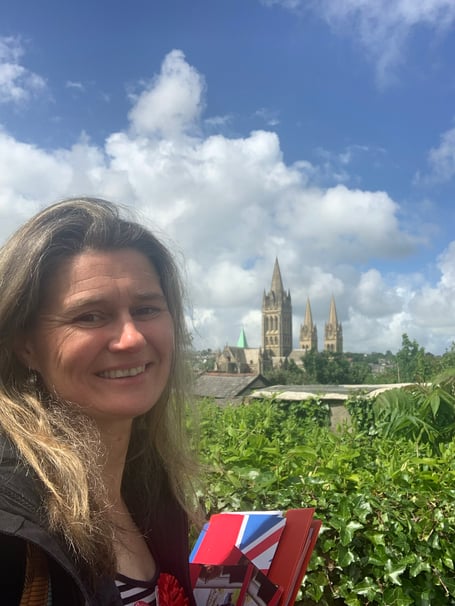Children growing up in our country deserve the best start they can possibly have in life. But there’s no doubt children today are struggling with a generational challenge to their mental health. A situation that has been escalating for years. Today, around 20 per cent of young people experience some type of mental health issue. Up from 14 per cent in 2017. That’s just the tip of the iceberg. There will be many more struggling with their wellbeing that don’t meet the threshold for a clinical diagnosis.
And the idea that young people ‘will grow out of it’ doesn’t match reality. Feeling uncomfortable with their emotions, sometimes not wanting to go to school or feeling isolated around others. These issues aren’t unique and seem to be increasing.
We're lucky we still have some youth services in my constituency after the last 14 years of them being deprioritised and underfunded by the last government. Zebs Youth Centre where Young People Cornwall have been providing a safe space for young people for decades, the Dracaena Centre in Falmouth with the skatepark built by the Town Council in the grounds, and Brook Cornwall. However, support in schools has also been hit over the last 14 years.
This month, new research has shown the direct, escalating impact poor mental health has on school attendance. The worse your mental health, the worse your school attendance and vice versa. A little absence quickly accumulates devastating impact: pupils missing ten days more than peers have half the odds of achieving good GCSEs and they earn £10,000 less at age 28 on average, compared to pupils with near-perfect attendance.
Labour is drawing a line in the sand. Our ‘Plan for Change; will ensure every child who needs it has access to mental health support within school – and this year we’ll roll that out to nearly a million extra children.
We know that learning how to open up can be a turning point in education and the schemes we are rolling out will provide young people with support from those who understand their experiences, increase their engagement with education and show them they belong at school. For example, our schemes will support teachers to identify which children need support; run sessions to tackle anxiety and low mood; and provide 1:1 support for those who need it.
By intervening during children’s formative years, we’ll halt the spiral towards crisis and cultivate resilience. We're already seeing green shoots on the school attendance front. 3.1-million more days in the classroom this year compared to last. School attendance was affected during Covid and stayed affected afterwards. Schools have been struggling with this so the government are starting new attendance networks, that alongside the Mental Health Support Teams, will drive high and rising standards to get more children back in the schools and engaged in learning.
These networks will provide tailored support to 500 schools with issues with attendance and behaviour. A further 4,500 more schools will get support through practical resources and training. This of course needs to be part of a coordinated effort to address students’ poor mental health and their knock-on effects.





Comments
This article has no comments yet. Be the first to leave a comment.